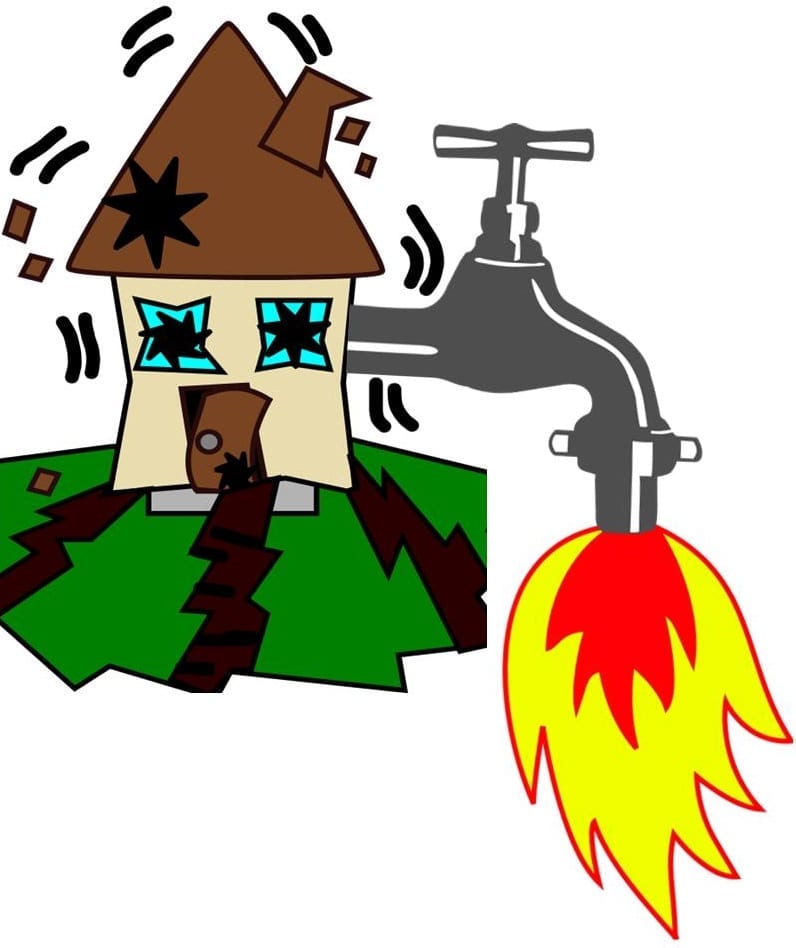Property owners in areas where hydrofracking are discovering that they may not be as safe as they thought.
Hydraulic fracturing, also known as fracking, is spreading to a growing number of regions across the United States, and while the method of extracting natural gas from the Earth is a controversial one, homeowners insurance policyholders are starting to wonder how much protection they truly have against some of the potential damaging events that could occur as a result of the technique.
In a number of parts of the U.S., many are blaming fracking for the sudden onset of frequent earthquakes.
Studies linking earthquakes to fracking activities are being produced at a rapidly rising rate, although there have been a few studies that suggest that these tremors are not actually linked to the hydraulic fracturing, at all. Among the states where earthquakes had not previously been present but where they have started to become increasingly commonplace since fracking activities begin include (but are not limited to) Texas and Oklahoma. This has caused homeowners insurance customers to take a second look at the type of impact that the practice can have on their homes, including in terms of potential damage and decreasing the value of their properties.
There are a number of things that homeowners insurance customers are doing to protect themselves from fracking.
 Among them has been a notable increase in earthquake insurance policy inquiries in states in which a tiny percentage of residents had ever expressed interest in the coverage, before. Aside from earthquakes, some residents are concerned about issues that could impact their home value, and what type of protection that they may have against that. For instance, many environmentalists claim that there is considerable potential for the contamination of drinking water, for air pollution, and even for light pollution, as there are very bright lights that shine all night long on the sites.
Among them has been a notable increase in earthquake insurance policy inquiries in states in which a tiny percentage of residents had ever expressed interest in the coverage, before. Aside from earthquakes, some residents are concerned about issues that could impact their home value, and what type of protection that they may have against that. For instance, many environmentalists claim that there is considerable potential for the contamination of drinking water, for air pollution, and even for light pollution, as there are very bright lights that shine all night long on the sites.
The concern about the current standard homeowners insurance policy is that it is unknown whether or not it will provide adequate protection for residents, as the full potential impact of hydrofracking has yet to be completely understood. Therefore, if damage should occur, it isn’t possible to know if that specific type of peril would be covered under the standard policy. The majority of insurance companies do not cover environmental contamination damage.
